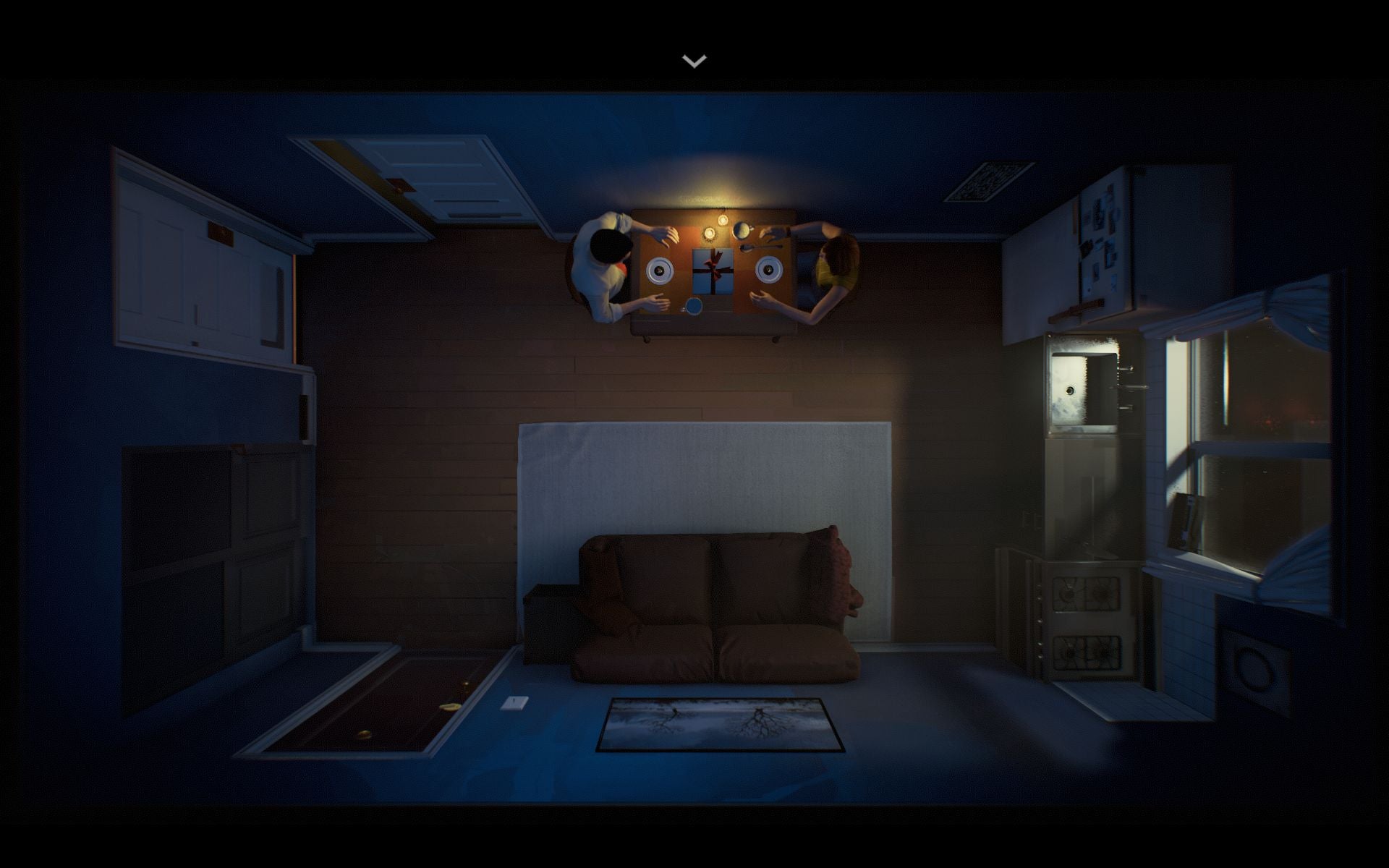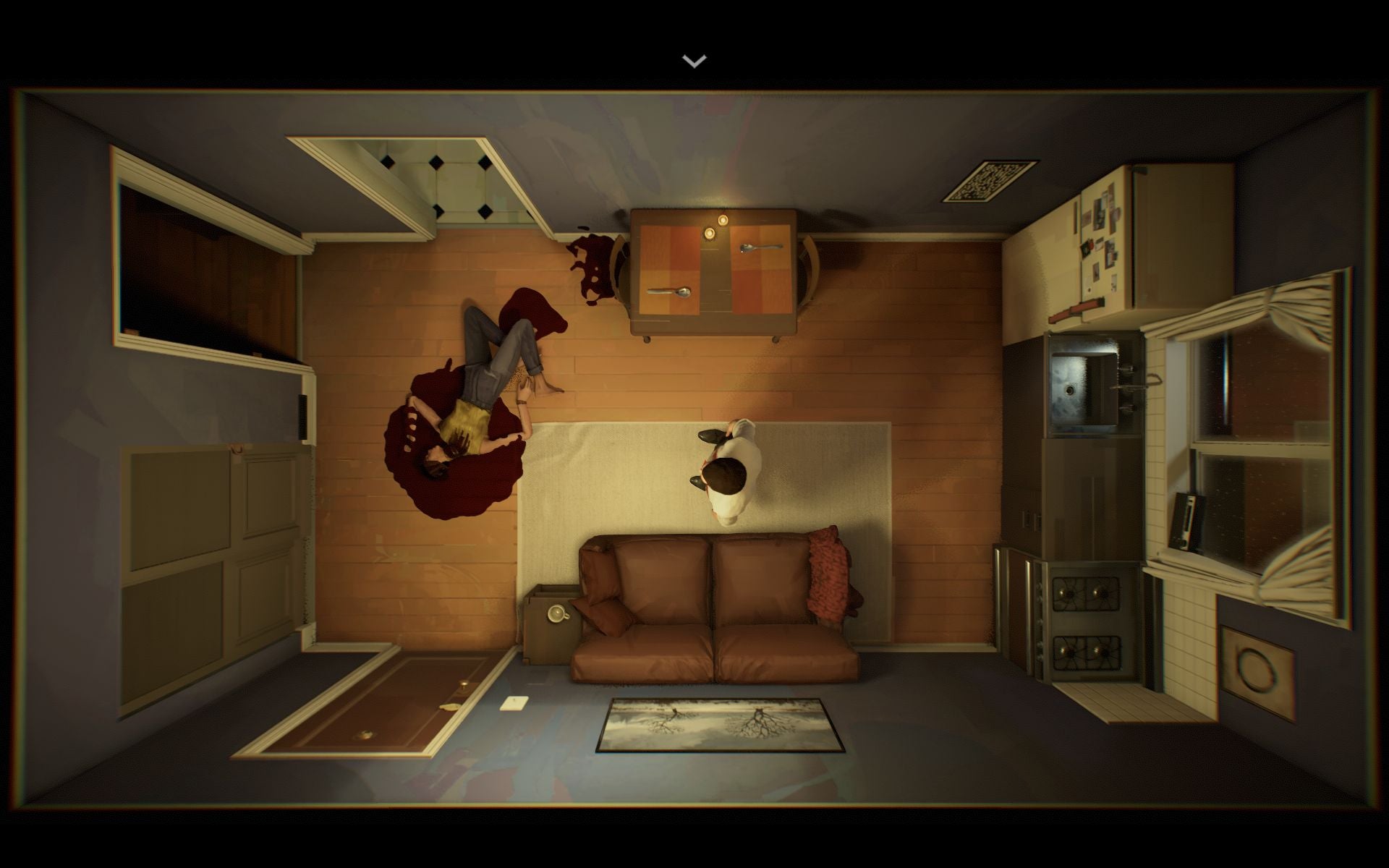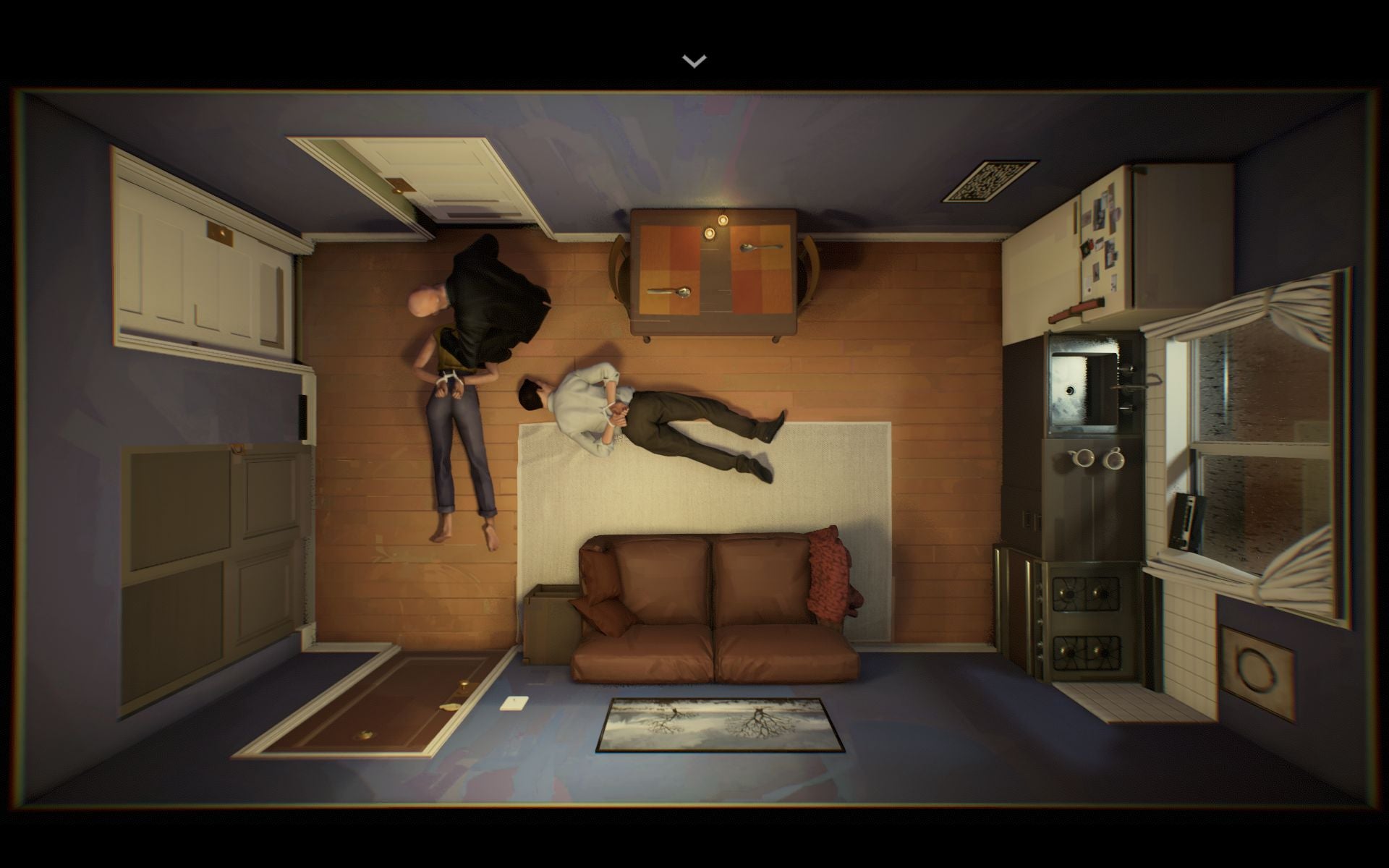Twelve Minutes is not a game that requires a particularly complex explanation of its design. It’s a narrative adventure game told from a top-down perspective. You play as a husband returning home only to find two shocking things: first, a man claiming to be a cop banging on the door saying your wife is wanted for murder, and second, the fact that you’re in a time loop. Time resets to the moment you entered the apartment every 12 minutes. The same thing happens if you somehow die or are critically injured. It’s an intriguing premise that leads to some thoughtful, thrilling game design concepts. Twelve Minutes is a game about information; knowledge is power, and so because you’re trapped in a time loop you can use each loop to learn a little more about the situation at hand in order to progress better on the next run through. This means that while the game occurs in twelve-minute loops and takes place almost entirely in three small rooms, the full experience will take you hours to complete; I’ve seen several different ‘endings’ and have over ten hours on my play clock. The looping structure might tempt you to do shocking things. You’re on your wife’s side, clearly, but what if she’s holding something on her person that could be a clue? Well, you could drug her, or even stab and kill her, to search her body - and then reset the loop. Fairly late on in the experience I discovered that a new and brutal way I could reset the loop - and I even noticed that the protagonist changes how he performs that action as he learns from past experiences. There’s something brilliant yet horrifying about this conceptually; a character doing terrible, unthinkable things simply because he knows they won’t really matter in the end. The slate is always wiped clean - but he also always remembers the horrors he has committed. You experience this character begin to unravel, and you somewhat feel it yourself. The mystery is progressed through use of simple adventure game tropes and mechanics. You can point, click, and drag to interact with objects to pick up, examine, and use items on people or elements of the environment. Using a knife on a person will have an obvious effect. Using sleeping pills on a mug will mean that if somebody drinks from it, they conk out. Drawers can be rummaged through. Phones can be used if you know the numbers to call - naturally, one immediate thought will be to call the police. And, of course, you can speak to people - interrogating your wife and the cop for information that can then be used in the next loop, either to prove the time reset is happening or to push for further revelations. It’s all rather clever, and what’s most enjoyable about the game, from chatting to other media also reviewing it, is that there’s clearly multiple paths to many of the key pieces of information throughout the story. You work your own way through matters depending on your own internal logic, and that might lead to the same result as others, but you can reach each story beat in very different ways. Incidentally, that’s why this isn’t a game you should follow a guide for - if you get stuck, look up hints rather than instructions, as they’ll help prod you towards your own solution that properly meshes with what you’ve done so far. Where Twelve Minutes struggles is in typical adventure game fashion: sometimes, the solution the game is asking for doesn’t match up to whatever your logic may be. A couple of times I ran aground even though I had the answer to the present mystery simply because I wasn’t presenting that answer in the correct moment or manner - and that’s frustrating. It’s the sort of thing that’s always been prevalent in the genre, from struggling to find which statement to object to in Ace Attorney to more organic situations like the one presented here - but it can be a bit of a downer. At least once the game is out, unlike me playing pre-release, you’ll be able to google some hints. Similarly testing is the loop itself. Part of the nature of the game is that you see the same scenes repeatedly - but the fast-forward dialogue skip has limited utility, and sometimes it’s a pain to have to sit through the same scenes again and again. At one stage I was stuck, but I knew that the point at which I needed to make some different decisions came late on, about seven or eight minutes into the loop. I couldn’t skip to that moment, however, as I had to tee things up so that the scene would play out in a specific way. Because I was stuck, and experimenting, I had to set that scene up about ten times, repeating the same actions and listening to much of the same dialogue all the way. I was able to do one of a few limited ‘fast travel’ moments to skip to the moment of the cop’s arrival part way through - but still, the repetition was pretty brutal. I get the impression that this is at least partially a conscious choice on the part of the developers. The point of the game is to soak in these moments through the repetition, and some of the protagonist’s frustration seeps into you as you’re both forced to retread old ground. But the flip-side of this is that a couple of times I stopped playing the game for a while just because I was tired of repeating myself - which doesn’t feel ideal. The edge is taken off some of this issue thanks to solid performances, at least. Twelve Minutes enlists Hollywood stars James McAvoy, Daisy Ridley, and Willem Dafoe, all of whom put in strong performances. These are characters with more nuance than you first think - though some of the characterization is as subtle as a sledgehammer. Much of the game is Kubrickesque, or Hitchcockian - but perhaps not so much the characters. Twelve Minutes ultimately presents a compelling, thrilling experience that feels more than worth the price of entry. It has interesting things to say through its looping core conceit, and it’ll tease your brain more than a few times - sometimes genuinely, sometimes through slightly cheap requirements to progress. I also admit I was less of a fan of where the story went in its later stages - but that doesn’t mean I wasn’t hooked. The journey matters more than the destination, after all - and a gripping journey this is.


